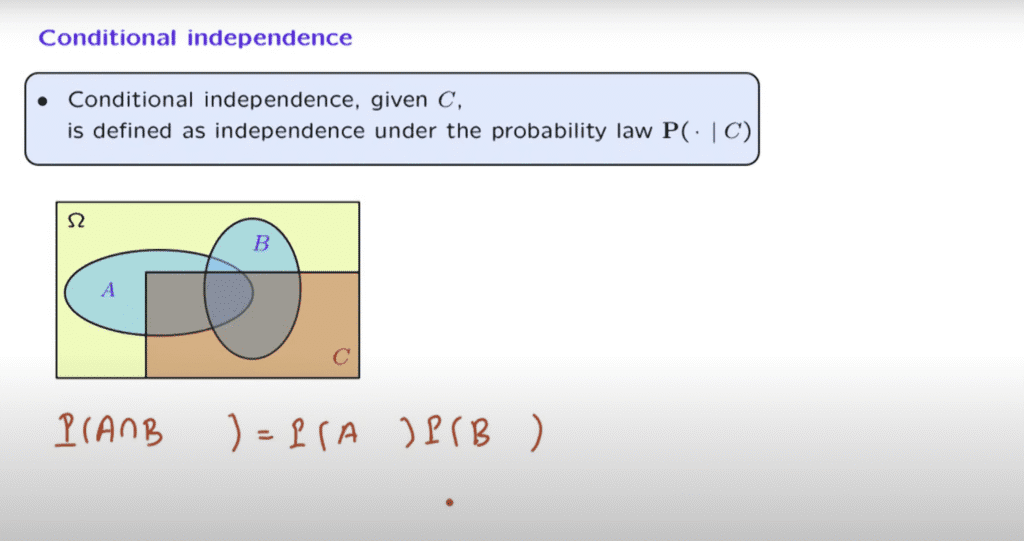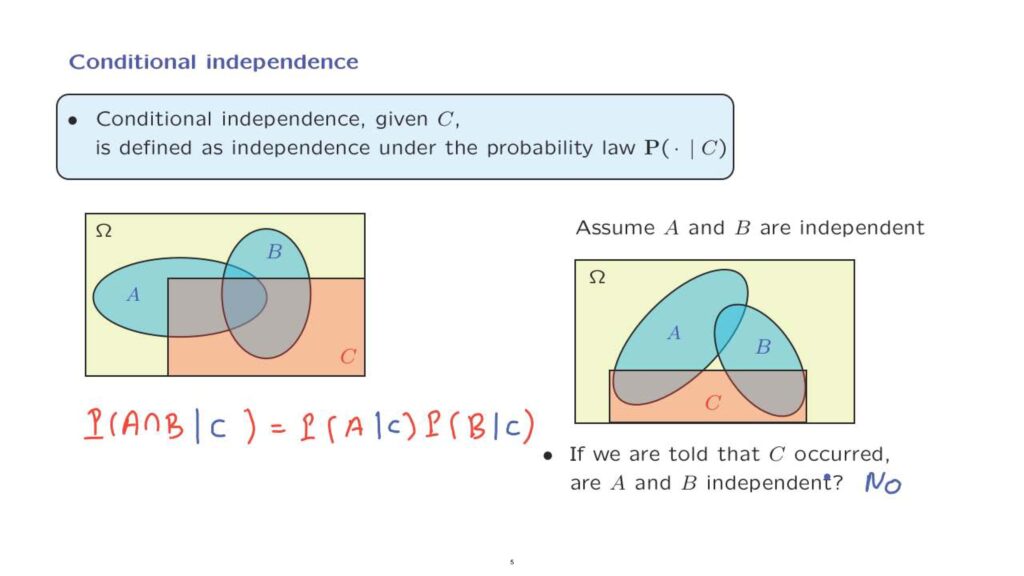Conditional probabilities are like ordinary probabilities, except that they apply to a new situation where some additional information is available.
For this reason, any concept relevant to probability models has a counterpart that applies to conditional probability models.
In this spirit, we can define a notion of conditional independence, which is nothing but the notion of independence applied to a conditional model.
Let us be more specific.
Suppose that we have a probability model and two events, A and B.
We are then told that event C occurred, and we construct a conditional model.
Conditional independence is defined as ordinary independence but with respect to the conditional probabilities.
To be more precise, remember that independence is defined in terms of this relation, that the probability of two events happening is the product of the probabilities that one of them is happening times the probability that the other one is happening.


This is the definition of independence in the original unconditional model.
Now, in the conditional model we just use the same relation, but with conditional probabilities instead of ordinary probabilities.
So this is the definition of conditional independence.
We may now ask, is there a relation between independence and conditional independence? Does one imply the other? Let us look at an example.
Suppose that we have two events and these two events are independent.
We then condition on another event, C.
And suppose that the picture is like the one shown here.
Are A and B conditionally independent? Well, in the new universe where C has happened, events A and B have no intersection.
As we discussed earlier this means that events A and B are extremely dependent.
Within C, if A occurs, this tells us that B did not occur.
The conclusion from this example is that independence does not imply conditional independence.
So in this particular example, we saw that the answer here is no.
Given C, A and B are not independent.